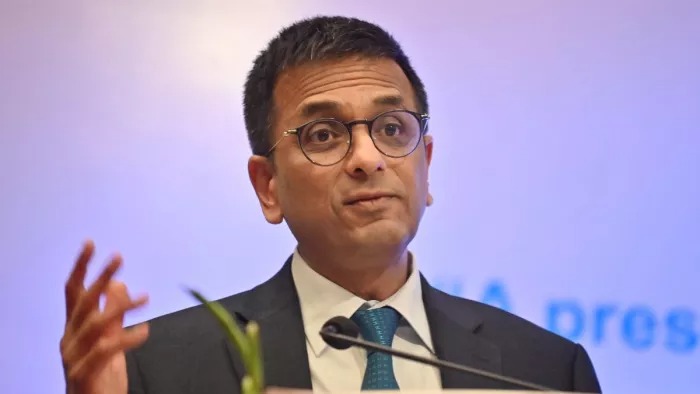
New Delhi: Chief Justice of India DY Chandrachud on Sunday made a pitch for a national-level recruitment process for judicial services, saying it is time to move beyond the "narrow walls of regionalism and state-centric selection".
Addressing the valedictory function of the two-day National Conference on District Judiciary at Bharat Mandapam, Chief Justice DY Chandrachud said at the conference that we must change the fact that only 6.7 per cent of our courts infrastructure at the district level is women-friendly.
'Is it acceptable in the country?'
He asked whether this is acceptable today in a country where some states have more than 60 or 70 per cent women recruited at the basic level of recruitment? The Chief Justice said, 'Our focus is on increasing accessibility measures, which can be understood by auditing the infrastructure. Opening medical facilities in the court, crèche and technological projects like e-service centers and video conferencing, these efforts are aimed at increasing access to justice.'
Speaking at the valedictory function of the 'National Conference on District Judiciary', the CJI believed that it was important to attract skilled personnel to deal with the high number of pending cases and stressed the need to standardise the recruitment calendar across the country to ensure that vacancies were filled in time.
Emphasis on standard recruitment process
He said, 'We must also ensure that our courts provide a safe and conducive environment for all members of society, particularly women and other vulnerable groups such as persons with disabilities, members of SC-ST and people from different socio-economic backgrounds.' Justice Chandrachud also informed that in the recently concluded first National Lok Adalat, about 1,000 cases were settled amicably in five working days.
He said that along with this, an efficient action plan has also been made to reduce pending cases through case management. The Chief Justice emphasized on a standard recruitment process which is beyond regional and state-specific biases and which promotes national integration and ensures a more equitable selection of judges.
--Advertisement--

 Priya
Priya Share
Share



